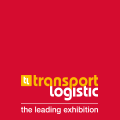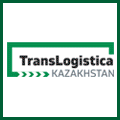The undersigned associations representing European ports, private port companies and terminal operators and tugowners support an effective and robust maritime EU ETS that enables the green transition of the maritime sector. The three associations recognise and reiterate the need for the shipping sector to reduce emissions. It is for this reason that we support requirements for ships to reduce emissions, alongside requirements for the use and deployment of OPS where it makes sense in ports.
In relation to the EU ETS, we have the following three recommendations that should be taken into consideration in order to deliver an ambitious, robust, and effective emission trading system:
- Prevent evasion by ships from the EU ETS that would create carbon and business leakage.
The undersigned associations welcome the measures proposed by Parliament and the Council to prevent ships from avoiding EU ETS costs by adding an additional non-EU port to their schedule.
The undersigned associations strongly support the measures adopted by European Parliament making it less attractive for ships to change their routes, divert calls, or engage in other evasive behaviours.
The definition of “non-EU transshipment port” is welcome. However, to avoid negatively affecting EU trading routes and short-sea shipping, this should only apply to neighbouring container transhipment ports.
Non-EU cargo diversion and evasive port calls via feeder traffic remains a risk. We therefore recommend that a strong monitoring mechanism is set up whereby the Commission shall continuously monitor and report on any cargo diversion or evasive port calls from day one. If any evasive behaviour is found, the Commission shall propose measures to address this.
- Earmark the revenues generated by a maritime EU ETS for investments in maritime and ports, especially in port infrastructure.
We support the proposal to create an Ocean Fund which shall allow for investments in refuelling and recharging infrastructure in ports (EP AM 441), as well as connections to electrical grid in ports. When bridging the price gap between conventional and alternative fuels (AM 501), the costs associated with the installation of new infrastructure in ports should also be considered. We also support allocating funding for investments in green superstructure in ports.
- Maintain the size threshold for vessels covered by the EU ETS as proposed by the European Commission (5000GT) to achieve ambitious and workable legislation.
We support the size threshold of 5000GT for ships covered by the EU ETS and the FuelEU Maritime proposals. We find that a lowered size threshold of 400GT would be counterproductive as it would jeopardise the safety of port operations and require significant additional investments that would nonetheless fail to deliver the desired emission reductions.
The 5000GT threshold, as proposed by the Commission, is appropriate for a number of reasons:
- It captures the vast majority of emissions from ships calling on ports in the EU whilst avoiding undue administrative burden for smaller vessels, the 5000GT threshold covers 90% of the carbon dioxide (CO2) emissions from the maritime sector.
- It relies on existing monitoring and data from the EU MRV Regulation, whereby the threshold is 5000GT
For these reasons we support maintaining the 5000GT threshold for ETS and throughout the Fit for 55-package (including the Alternative Fuels Infrastructure Regulation and FuelEU Maritime).
We are committed to facilitating the greening of shipping and will continue to support the discussions on the maritime aspects of the Fit for 55-package in order to deliver an ambitious, coherent and workable legislative framework.



.jpg)






